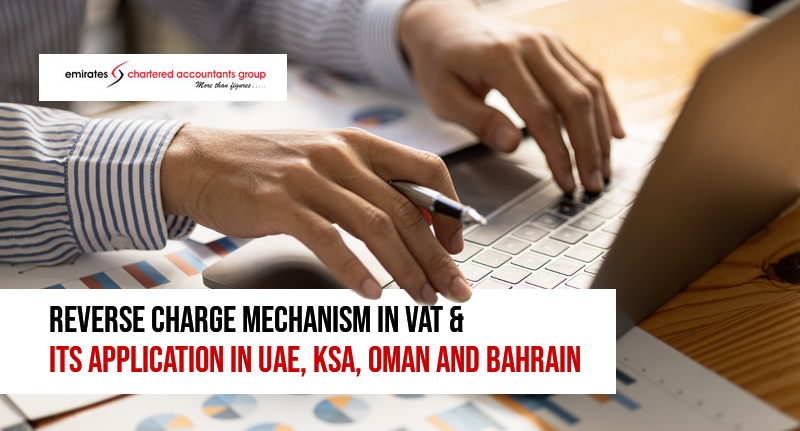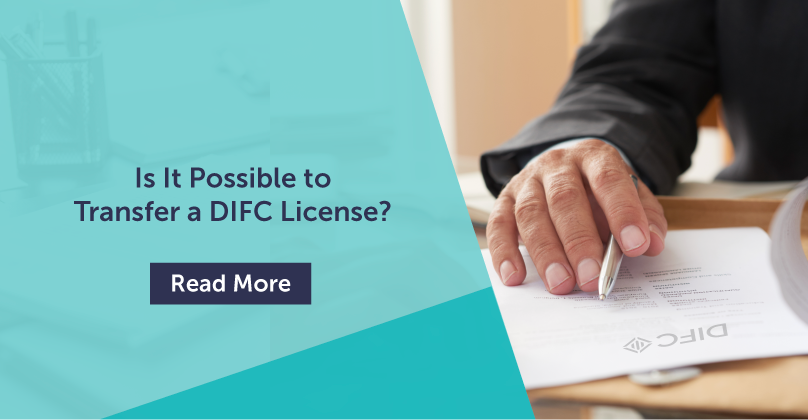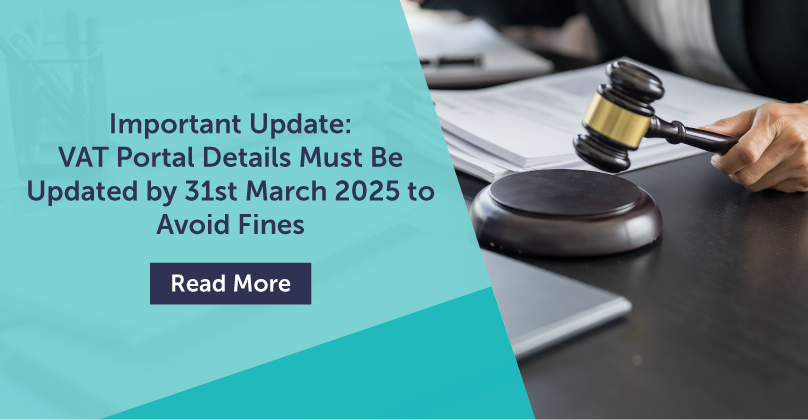
Reverse Charge Mechanism in VAT and Its application in UAE, KSA, Oman, and Bahrain
Though VAT is implemented in GCC countries based on the common VAT agreement of 2016, there are differences in tax reporting requirements and procedures related to Reverse Charge Mechanism in various VAT implemented countries namely the United Arab Emirates, Kingdom of Saudi Arabia, Sultanate of Oman, and the Kingdom of Bahrain. The idea is to shed light on the businesses that are associated with multiple or any of these countries and to understand the legal and compliance requirements to be met as per the law.
There were many new procedures that came along with the implementation of VAT and one of the most widely used practices is the requirement of the Reverse Charge Mechanism, its liability, and reporting.
What is Reverse Charge Mechanism?
VAT is always a liability of the supplier: the collection from the customer and remittance with the government – which is why it is also known as the forward charge mechanism. But in very few scenarios the liability shifts from the supplier to the customer, and this shift of liability and responsibility is called the Reverse Charge Mechanism.
Let us understand what are the supplies in different VAT implemented GCC countries where RCM is applicable-
|
RCM applicable transactions |
UAE |
KSA |
Bahrain |
Oman |
|
Import of goods |
|
|
|
|
|
Import of services |
|
|
|
|
|
Purchase of goods from Designated zone |
|
|
|
|
|
Supply by a tax registrant to another tax registrant for further supply of- |
|
|
|
|
|
Hydrocarbons |
|
|
|
|
|
Crude or refined oil |
|
|
|
|
|
Processed or unprocessed natural gas |
|
|
|
|
|
or use the above to produce or distribute energy |
|
|
|
|
|
Supply of precious metals with 99.9% or more purity such as gold, silver, etc. for further business between tax registrants. |
|
|
|
|
|
Supply by a Non-resident tax registrant to a resident tax registrant inside the state |
|
|
|
|
Payment and reporting requirements
Generally, most of the services received from a foreign supplier shall be reported under the Reverse Charge mechanism. It is to be noted that, in all cases, there will not be any requirement for payment of the VAT with respect to services subject to the reverse charge mechanism. The tax registered customer shall be responsible for reporting and disclosing in their VAT return and the same liability will be nullified with the VAT input recovery and thereby the net payable will become nil.
The RCM VAT on import of goods and services needs to be reported in the books of accounts, the entry is mentioned below-
Purchase A/c Dr 100
Input RCM A/c Dr 5
To Party A/c 100
To Output RCM A/c 5
In the case of imports related to goods, the treatments are different depending on the country. Generally, the procedures adopted are of two types-
- Imports without VAT payment.
- Imports with VAT payment.
Imports without VAT payment
All the VAT implemented countries have special import mechanisms where there is no requirement to pay VAT during an import, it can be by making a deposit in advance at the customs or temporary keeping of goods in the designated zones for a certain period or meeting certain conditions as specified by the respective authority.
In UAE, as per the customs suspension terms, goods can be retained at the port which is a designated zone for a specific time period, these goods are not considered as imports as per the UAE VAT law. Usually, such imports are done for re-export purposes and therefore this mechanism helps to avoid duty and VAT payments. Whereas, in other countries such as Oman and Bahrain, a prepayment or deposit equivalent to the VAT portion of the average yearly import needs to be remitted to avoid paying VAT for every import.
Imports in UAE by a VAT registered person using their TRN code need not pay VAT at customs for clearing the goods, the imported value and the VAT liability will be pre-populated in their respective VAT return during their VAT return filing and the same VAT amount can be taken credit (if the import is done for business and not personal) resulting in no additional payment.
On the other hand, in all other countries VAT is mandatory to be paid at customs for clearing the goods which they can eventually claim input during their VAT return but thereby resulting in a temporary cash outflow.
Imports with VAT payment
All the VAT implemented countries have enabled VAT payment of goods at the customs for clearing of goods to the respective countries. VAT on imports is mandatory for clearing the goods for all the countries except the United Arab Emirates. If the importer is un-registered for VAT or if the registered importer is not linked his TRN with the customs, only in these scenarios does VAT needs to be paid for imports in the United Arab Emirates. The import VAT can be paid by the importer or by the clearing agent on behalf of the customer for every import.
Our Tax Services
Tax Services in Dubai:
Mr. Pradeep Sai
sai@claemirates.com
+971 – 556530001
Tax Services in Abu Dhabi:
Mr. Vinay. E. R
vinay@claemirates.com
+971 54 378 4414
Tax Services in Northern Emirate (Sharjah, Ajman, RAK, Fujairah)
Mr. Praveen
praveen@claemirates.com
+971 – 508873115
Tax Services in Bahrain
Mr. Bichinraj
br@claemirates.com
+973 36198998




